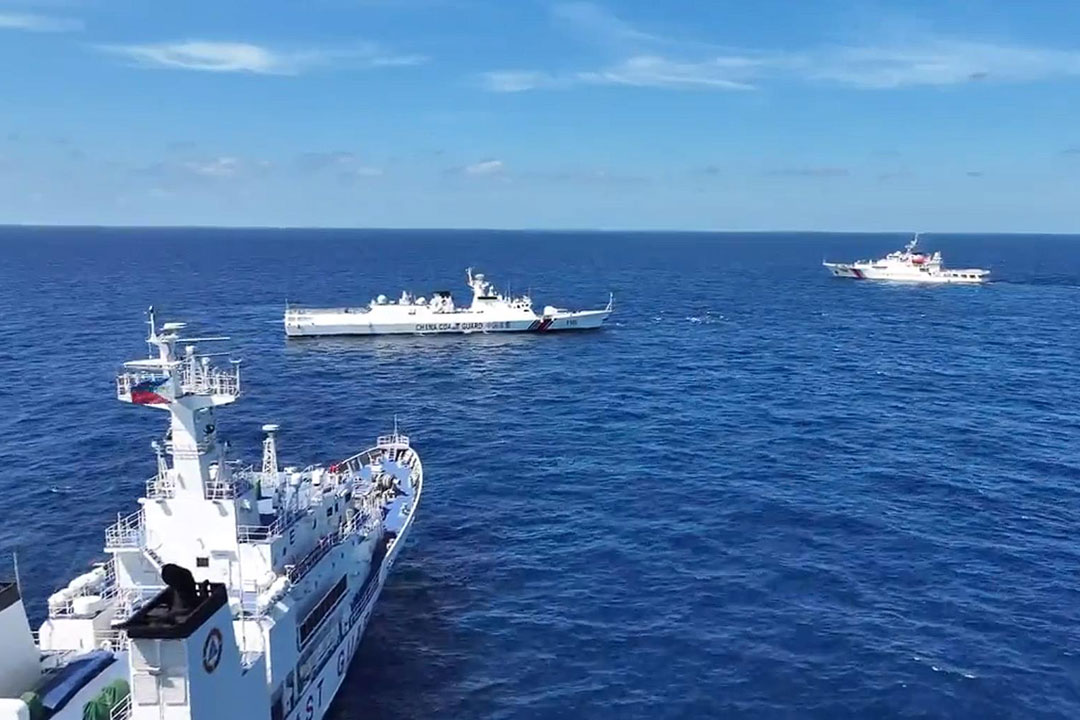China’s Actions Threaten South China Sea Stability
The South China Sea, a vital maritime passage and resource-rich region, has become a simmering geopolitical tension. China’s recent announcement authorizing its Coast Guard to detain foreign “trespassers” within its claimed territories, including the Philippine Exclusive Economic Zone (EEZ), has ignited a firestorm of condemnation and threatens to boil over into a full-blown crisis.
China’s Unilateral Power Play: A Challenge to International Law
China’s new policy hinges on its controversial nine-dash line claim, encompassing nearly the entirety of the South China Sea. The 2016 international arbitral ruling at The Hague comprehensively rejected this claim, which favored the Philippines and declared China’s expansive claims to have no legal basis under the United Nations Convention on the Law of the Sea (UNCLOS). The new policy blatantly disregards this ruling, setting a dangerous precedent and undermining the very foundation of international maritime law. Experts like Chester Cabalza, president of the International Development and Security Cooperation think tank, highlight this violation, stating that China’s actions are “a violation of the 2016 Arbitral Award.”
A Coercive Tactic Targeting the Philippines
The timing of this announcement is exceptionally provocative. It coincides with the successful civilian resupply mission to Scarborough Shoal undertaken by the Atin Ito Coalition. It is a powerful symbol of Philippine resilience and determination to assert its rights within its EEZ. China’s policy is a direct response, aiming to intimidate and deter future Filipino actions by raising the specter of arbitrary detention. This coercive tactic threatens the Philippines and sets a precedent for other nations with overlapping claims.
Beyond the Philippines: A Regional Threat
The implications of China’s policy extend far beyond the immediate Philippine-China conflict. Vietnam, Malaysia, Brunei, and Taiwan all have overlapping claims in the South China Sea. China’s unilateral power grab also poses a significant threat to these nations. The potential for arbitrary detention of foreign citizens raises the specter of heightened tensions and instability throughout the region. This could disrupt vital trade routes, negatively impacting the global economy, and potentially escalate into military confrontations.
The Philippines’ Response
The Philippine government has rightfully condemned China’s actions. President Marcos Jr.’s commitment to take “whatever measures” necessary to protect Filipino citizens and territory is a critical first step. House Speaker Romualdez’s assurance that the House will fiercely defend the country’s sovereignty reflects the Philippines’ resolve to stand firm in the face of Chinese aggression. However, the Philippines needs help to navigate these troubled waters.
The Need for a Concerted International Response
The international community has a vital role to play in de-escalating tensions. A strong, unified voice upholding international law is crucial. The 2016 arbitral ruling must be reaffirmed, and pressure must be exerted on China to respect its obligations under UNCLOS. Diplomatic channels must be kept open, fostering dialogue and promoting peaceful solutions.
Strengthening Regional Cooperation
The nations with claims in the South China Sea must also work together. Building a united front against unilateral actions and promoting joint patrols and resource exploration efforts could project a powerful message of regional solidarity. This could also open doors for collaborative efforts in environmental protection and sustainable development of the South China Sea’s resources.
Beyond Geopolitics: The Human Cost
Lost amidst the geopolitical maneuvering are the human stories. Filipino fishermen who rely on the contested waters for their livelihoods face a future of uncertainty and fear. The potential for arbitrary detention and the disruption of traditional fishing grounds could have devastating consequences for coastal communities. The international community must understand the human costs associated with this conflict.
The South China Sea dispute is a complex issue with no easy solutions. However, resorting to threats and intimidation is not the answer. The path forward lies in peaceful resolution built on respect for international law, existing agreements, and the rights of all nations with legitimate claims. Open communication, collaborative efforts, and a commitment to diplomacy are essential to navigate these troubled waters. The world watches with bated breath to see if the international community can rise to the challenge and prevent the South China Sea from becoming a flashpoint for military conflict. This is a critical juncture, and the stakes are high for regional stability and the global order.






